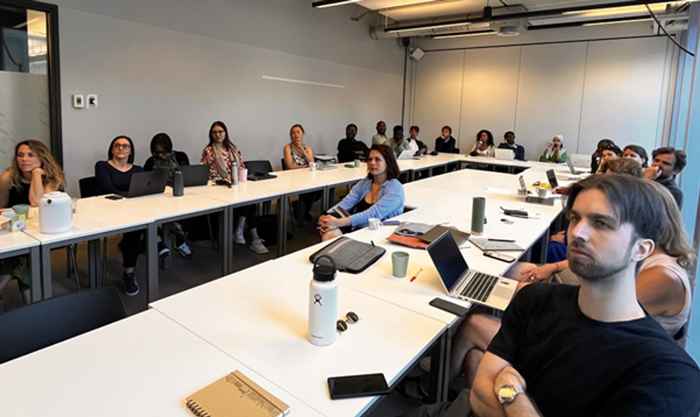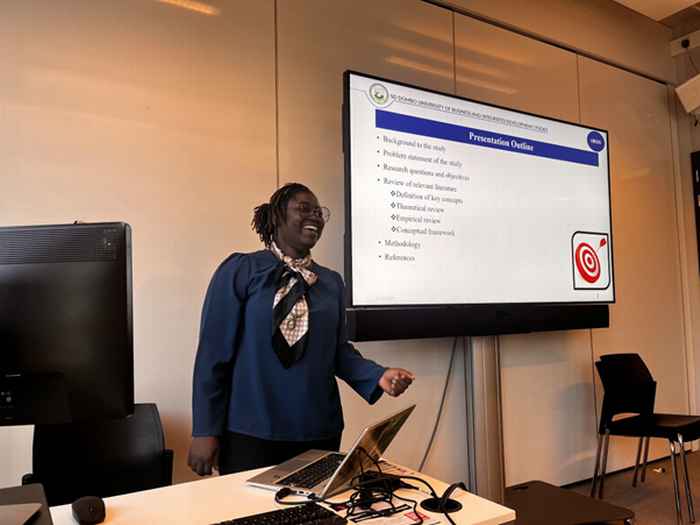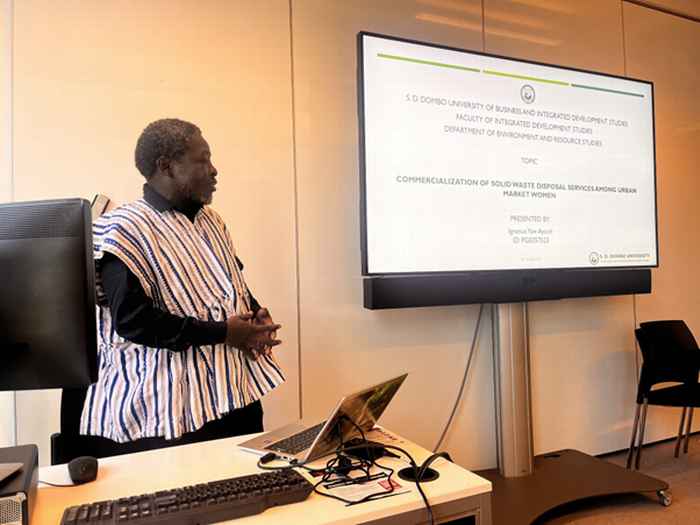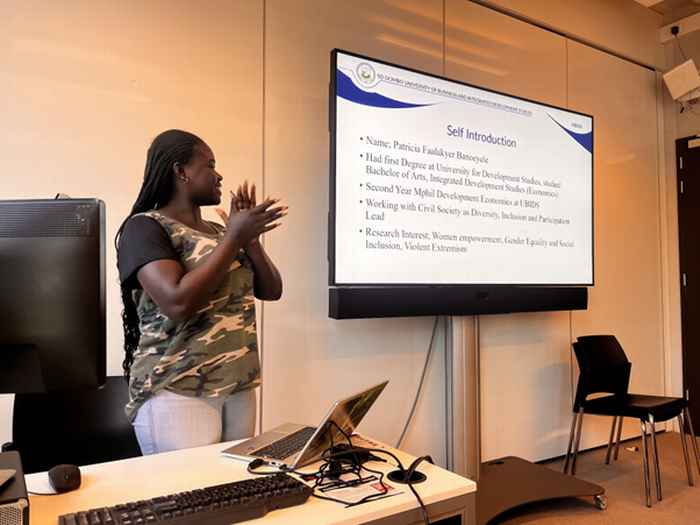Bridging Continents, Sharing Knowledge
GID Seminar May 2025
2 June 2025

It also explores how certain forms of knowledge remain underrepresented or marginalized in debates, policies, and practices. Transdisciplinary research and the co-creation of knowledge are central threads that connect and strengthen our work.
Welcoming Ghanaian students to GID
In this spirit, during the final weeks of spring, the GID group had the pleasure of welcoming a group of students from SD Dombo University of Business and Integrated Development Studies in Northern Ghana. They visited Amsterdam through the Erasmus+ Exchange Grant, fostering mutual learning, capacity-building, and international dialogue on sustainable development.
On 13 May, the GID group hosted a special edition of our monthly GID Seminar. Three of the visiting students presented their work to an audience of more than twenty researchers, lecturers, and students from across the University of Amsterdam.
This event highlighted the strong interest and commitment within the GID community to building academic bridges across contexts and regions. The monthly GID seminars not only provide a space for intellectual exchange but also serve as a vital platform to amplify diverse voices and research perspectives that often remain underrepresented in mainstream development discourse.
Each of the four students presented their research-in-progress in a concise 7-minute format, followed by questions and an open discussion. Their work reflected a deep engagement with local development challenges and a clear commitment to social impact:
- Winifred Esinam – The role of community radio in promoting women’s political empowerment for participation: a case study of radio for peace and development in Damongo, West Gonja Municipal Area

- Ignatius Ayirah – Commercialization of solid waste disposal among urban market women.

- Patricia Banoeyele – Women Empowerment on Children's Nutritional Status in Sub-Saharan Africa

Each presentation opened up space for reflection on key issues such as the intersection of gender and governance, the informal economy and sustainability, and the structural dimensions of poverty and health. Beyond the content of the research itself, the students’ perspectives brought attention to the value of community-driven knowledge and grassroots development initiatives.
This session was a powerful reminder of the importance of international academic exchanges: not just for knowledge production, but also for solidarity and shared learning. Through these dialogues, we begin to see how different contexts may face similar structural challenges, but also how locally rooted solutions can offer valuable insights for global debates on development.
Our sincere thanks to Winifred, Ignatius and Patricia for their generous and thoughtful contributions, and to the Erasmus+ programme for making this exchange possible. We look forward to continuing this collaboration and to further deepening ties between researchers across continents.
The next GID Seminar will take place in June—stay tuned for more details.